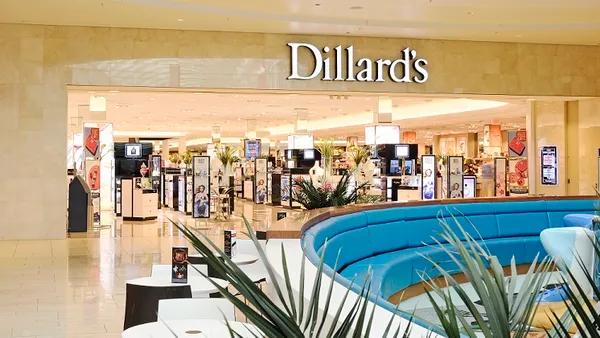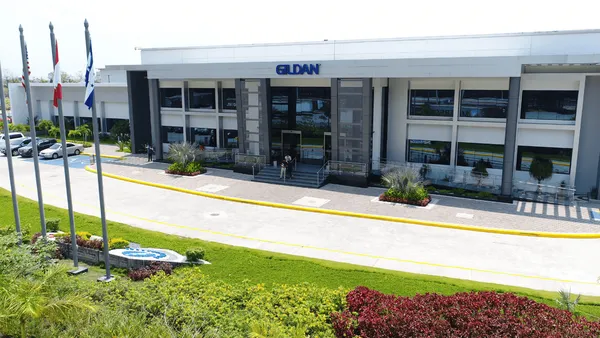Dive Brief:
- It’s official: Staples’ new private equity owner, Sycamore Partners, plans to split up the office supplies seller by spinning off its retail operations from its corporate sales unit.
- In a filing with the Securities and Exchange Commission, Staples said it expects to separate its U.S. retail business and Canadian retail businesses into two separate Sycamore-affiliated entities. The carveout transactions would be independently financed and yield $1.35 billion for Staples Inc. Post-spinoff they would be run and managed independently, according to the filing. The remaining Staples business would then be the current North American Delivery unit, which includes Staples Advantage and Quill.com.
- To finance the transaction with Sycamore, Staples expects to take out a total of $4.25 billion in debt and will pay $145 million in fees and expenses related to the merger and carveouts, as well as another $156 million in fees related to the merger financing. A Staples spokesperson declined to comment or provide additional details about the transaction plans.
Dive Insight:
After Sycamore Partners announced it would buy Staples for $6.9 billion, reports soon surfaced that the private equity company had plans to break the office supplier up. The Wall Street Journal at the time reported that the move was meant to make the leveraged buyout of Staples an easier sell to bond and loan investors, who are wary of retail debt in an age of proliferating bankruptcies.
There is precedent for such a complicated transaction, including the Jones Group acquisition in 2014 that resulted in the company’s brands splitting into several separate units, two of which it sold off. One of the companies from that acquisition, Nine West, is struggling under its debt and has been listed on Fitch Ratings’ Bonds of Concern because of the risk it will default.
The logic of separating out Staples' profitable business-to-business unit from the retail unit, which is struggling in the age of Amazon and proliferating office supply sales among brick-and-mortar sellers, might seem obvious at first. But Matt Sargent, senior vice president of retail for Frank N. Magid Associates, told Retail Dive in a June interview — when rumors of a Staples split first surfaced — that it’s difficult to separate out the value that Staples’ physical stores has to its B2B operations. In other words, cutting off the retail side — which provides a touch point with customers and a distribution advantage — could hurt Staples’ corporate sales.
Staples' B2B unit is also facing heightened competition these days from Amazon, which has been building its own corporate office supplies sales operation as it eyes the high-margins in that space. "I would be shocked if they [Staples] could keep their market share" in the B2B sector, Sargent said. Sargent’s firm found in survey data that 56% of workplace purchasers had recently bought general office supplies from Amazon. Another 53% had bought technology products and 42% had bought break room and cleaning supplies from the e-commerce giant, according to Magid data.
More broadly for the industry, Sycamore’s acquisition of Staples shows the bind many publicly traded retailers are in given the current investor climate. Staples executives have been trying for years to find a way to bring sales and profitability up to please investors, including an attempt to buy rival Office Depot, a deal blocked by federal antitrust enforcers. In lieu of a sharp turnaround or large acquisition, the company offered stockholders a buyout.
"Managing the business to pacify shareholders requires short-term focus, which in our view is not only shortsighted but an act of self-sabotage because it sacrifices long-term gain," wrote analysts with ratings firm Moody’s in a June note emailed to Retail Dive. "In our view, this makes Staples’ long-term survival more challenging." Moody’s described the Staples acquisition as a "tipping point" for retailers, which signals that the company believes "the only way to enhance shareholder value is to sell itself to a sponsor — a move that could have ripple effects across retail."
"We believe the Staples LBO means that retail boards are coming under more intensive pressure as they juggle shareholder interests with growth objectives," the analysts added. "Necessary short-term investment for long-term benefit can stress earnings (similar to Amazon), and hurt share prices (dissimilar to Amazon). Considering this dynamic, we would not be surprised to see more retailers pursuing LBOs going forward."












